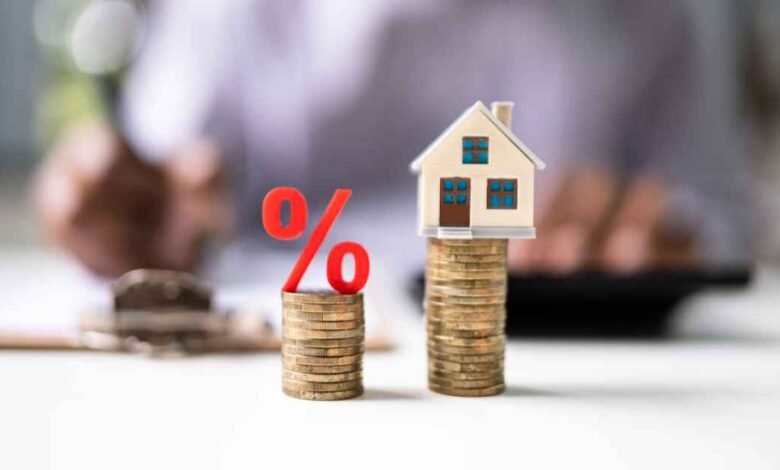Impact of Economic Factors: Loan Against Property Interest Rates

When applying for a loan against property, it’s important to understand that the interest rates offered by lenders are influenced by various economic factors. In this article, we will explore the impact of economic factors on loan against property interest rates and how they can affect borrowers.
Economic Factors Influencing Loan Against Property Interest Rates
Here are some key economic factors that impact LAP interest rates:
1. Monetary Policy:
The monetary policy set by the central bank of a country, such as the Federal Reserve in the United States or the Reserve Bank of India, influences interest rates. When the central bank tightens monetary policy by increasing the benchmark interest rate, it leads to higher borrowing costs for lenders. As a result, loan against property interest rates may also rise. Conversely, when the central bank eases monetary policy by reducing interest rates, it can lead to lower loan interest rates.
2. Inflation Rate:
Inflation refers to the increase in the general price level of goods and services over time. Lenders take inflation into account when determining loan interest rates. If the inflation rate is high, lenders may increase the interest rates on loans to offset the eroding value of money over time. Conversely, when inflation is low, loan against property interest rates may be relatively lower.
Also Read: How to finance your home purchase
3. Economic Growth:
The overall economic growth of a country is another crucial factor affecting loan interest rates. During periods of robust economic growth, lenders may feel more confident about lending and may offer lower interest rates on loans, including loans against property. However, during economic downturns or recessions, lenders tend to be more cautious and may raise interest rates to compensate for higher perceived risk.
4. Market Conditions:
Market conditions, particularly in the real estate sector, can impact LAP interest rates. If there is high demand in the property market, lenders may lower interest rates to attract more borrowers. On the other hand, if the property market is experiencing a slowdown or if there is an oversupply of properties, lenders may increase interest rates to manage their risk exposure.
5. Government Policies and Regulations:
Government policies and regulations related to the banking and financial sectors can have a significant impact on loan against property interest rates. Changes in regulations or government interventions can influence how lenders operate and the interest rates they charge. For example, government subsidies or incentives for certain types of loans can result in lower interest rates for borrowers.
In conclusion, economic factors play a significant role in determining LAP interest rates. Borrowers need to stay informed about these factors and their impact on interest rates. By understanding the influence of monetary policy, inflation, economic growth, market conditions, and government policies, borrowers can make more informed decisions when applying for a loan against property. Consulting with financial advisors or lenders can provide further guidance and insights into the current economic conditions and interest rate trends.
FAQ
Here are some frequently asked questions related to economic factors and loan against property interest rates:
Q1: Can I negotiate the interest rate on a loan against property?
Yes, borrowers can negotiate the interest rate on a loan against property with the lender. It’s essential to compare rates from multiple lenders, present a strong creditworthiness, and demonstrate a favorable loan-to-value ratio to potentially secure a lower interest rate.
Q2: Are loan against property interest rates fixed or variable?
Loan against property interest rates can be either fixed or variable, depending on the terms of the loan agreement. Fixed rates remain constant throughout the loan tenure, while variable rates may change based on market conditions or as per the terms of the loan agreement.
Q3: How can I take advantage of low interest rates on a loan against property?
To take advantage of low interest rates on a loan against property, it’s advisable to keep track of market conditions and monitor the economic factors influencing interest rates. Timing your loan application when interest rates are low can help you secure a more favorable rate.
Q4: Can economic factors affect the eligibility for a loan against property?
Yes, economic factors can influence the eligibility for a loan against property. For example, during economic downturns, lenders may tighten their lending criteria and become more risk-averse, making it more challenging for some borrowers to qualify for a loan.
Q5: Can I switch lenders to get a lower interest rate on my existing loan against property?
Yes, it’s possible to switch lenders to get a lower interest rate on an existing loan against property. However, borrowers should carefully consider refinancing costs, prepayment penalties, and the overall benefits of switching lenders before making a decision.



